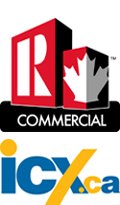How to Win at Commercial Real Estate Negotiation
 |
| http://www.sxc.hu/profile/Mattox |
Commercial real estate is a category of property that is structured around income performance. It is the lease that provides the stability to the income performance. When you get the lease correctly structured and agreed, the property will be a performing asset. Poorly leased properties with random lease documentation on average achieve lower sale prices when purchased by an investor.
If you are a property investor, you will be very interested in the structure of the relevant property lease and the stability of the sitting tenant. If you are a real estate agent, it is important that you develop lease controls and processes that optimise the tenancy outcome for the landlords that you serve.
The lease on a property will impact the cash flow for many years, hence careful control and decisions are part of the process.
To lease a commercial property, it is not just a matter of making decisions regards rental and lease term. The critical elements of the lease document will include important points such as:
- The type of rental paid is actually more important than the level of rental. This rental type can be gross or net rental and the recovery of outgoings from the tenant will be impacted by the choice of rental. The net income for the building is driven from the decisions taken by the landlord in this regard.
- The initial lease term should be carefully considered and this is done at the commencement of the lease when the tenant is found. Usually this lease term will be a number of years based on the negotiation between the tenant and the landlord. In most property types, it is not desirable to have lengthy lease terms which restrict the landlord from future property decisions. This has to be balanced against the landlord's requirement to do the lease deal in the prevailing market at the time. A landlord should always retain control over the asset and not randomly give lengthy lease terms without careful consideration on the future of the investment property.
- An option for a further lease term. Many tenants prefer and seek to have an option for a further lease term. This gives them stability in the business operation. It does however restrict the landlord from future property decisions and any associated strategies such as redevelopment or refurbishment. This then suggests that the option for a further lease term should not be given without careful consideration.
- The incentive given for any initial lease term may exist and may vary by type. When property markets become less active or frustrated by the economy, tenants will ask for an incentive as part of taking up a lease; the landlord will have little choice. The incentive can be a variety of methods including cash, landlord fit out, reduced rent, or rent free period. The choice that the landlord makes is largely dictated by the impact of the incentive on the landlord's taxation position. For example, a landlord funded fit out may be an item of expense which may create depreciation under local taxation laws. The landlord needs to check this out with their accountant. It could be that the landlord will see the depreciation as more useful than a rental reduction or rent free to the tenant.
- The permitted use for the premises should be clearly outlined in the lease documentation. What you should be seeking to do is control is direct the way in which the premises are used. This is critical when it comes to future occupation and potential assignment of the lease. It is to the landlord's advantage that the property is used specifically for an agreed purpose. This then prevents any conflict with the tenant mix in the property. When the tenant mix is poorly controlled, it will impact the rental and destabilise the property. As you would expect, this is critical in a retail shopping centre.
- The outgoings recovery is of concern to the landlord and the tenant. The outgoings that are recovered from the tenant should be clearly detailed in the lease document. When a property is sold in the future, the recovery of outgoings will be of great interest to the buyer of the property. They will be seeking to maximize their net return and recover as much from the tenants as possible.
- The controls imposed on a tenant during fit outs are important if you want happy tenants in the building. When a fit out is commenced for a sitting tenant, it is in the landlord's interest to control the trades people on site and the approval processes for the fit out works. This will allow the landlord to achieve the quality of fit out construction that complements the building whilst not upsetting other tenants in close proximity. Part of this will be the due regard to the structural drawings and design of the building. Any tenant fit outs should be approved by the landlord before the works are commenced. It may also be that the local planning authority should approve the fit out design and drawings before they are undertaken.
John has specialized in major commercial, industrial, and retail property for over 30 years. He knows what works and what doesn't. He gives you the 'good oil' on getting active and achieving results.
You can get John Highman's free tips and tools in commercial, industrial, and retail property at http://www.commercial-realestate-training.com
Article Source: http://EzineArticles.com/?expert=John_Highman




0 comments:
Post a Comment